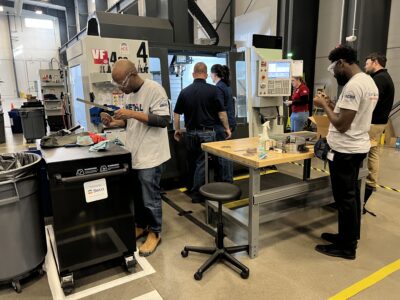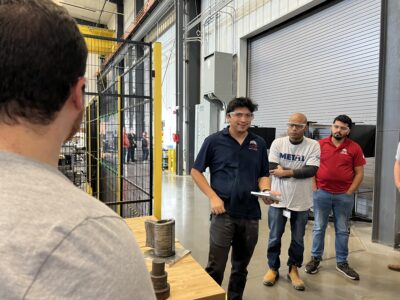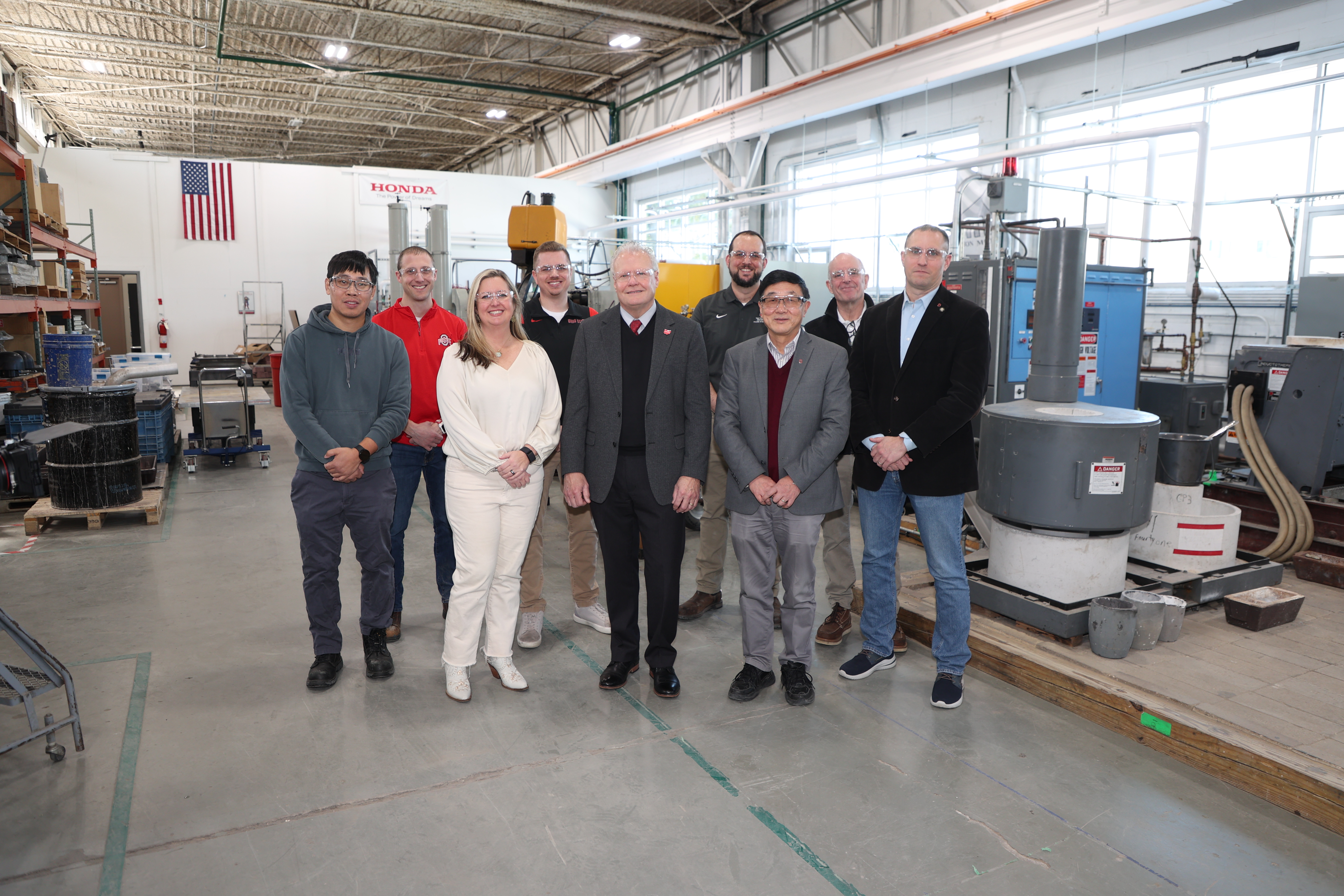
IACMI and Ohio State personnel celebrating the METAL Hub with JobsOhio’s Glenn Richardson (center) at Ohio State University
COLUMBUS, Ohio, March 12, 2025 – Metallurgical Engineering Trades Apprenticeship & Learning (METAL) is proud to announce a new partnership with The Ohio State University to enhance and scale up industry-driven training opportunities for current and prospective metalworking and manufacturing professionals. Led by IACMI – The Composites Institute® with funding from the Department of Defense’s Industrial Base Analysis and Sustainment Program, METAL strengthens and diversifies the U.S. metal manufacturing workforce, focusing on casting, forging and plate rolling.
To celebrate the new partnership, Managing Director of Advanced Manufacturing and Aerospace at JobsOhio Glenn Richardson toured Ohio State’s Center for Design and Manufacturing Excellence (CDME), where many of the new training opportunities and workshops will be held. The center gives students hands-on experience working on industry-funded advanced manufacturing projects.
“The opportunity here is to invite K-12 kids as well as adults to come and make things,” said Richardson. “We’re focusing on casting and forging but also machining. This group of people here is focused on building the future workforce that supports making things in America. In my role as a JobsOhio representative and a member of the IACMI Consortium Council, I’m pleased to be here today and support this kickoff.”
Through a blended approach of online and hands-on training, the METAL hub at Ohio State will teach fundamental skills in metalworking, heat treatment and machining, as well as specialized topics like automation in the casting and forging industries.
Ohio State will provide educational resources and workforce development opportunities for students, industry professionals, and the broader community, while also fostering innovation and collaboration across higher education, industry, and K-12 programs. The university joins a network of METAL hubs, including Pennsylvania State University, the University of Alabama Birmingham and the University of Tennessee in Knoxville, expanding access to industry-relevant training and workforce development. These hubs are designed to support METAL’s goal to revitalize U.S. manufacturing. Casting and forging are a foundational element of America’s advanced manufacturing capabilities, which are essential to the country’s national security and continued economic vitality.
“METAL’s partnership with Ohio State will increase workforce skills in metallurgy in skilled trades from the technician through engineering levels providing a pipeline of personnel excited about the industry,” said Lucinda Curry, METAL National Workforce Manager at IACMI. “By working together, we are increasing capacity in the United States to meet both the commercial and national defense supply chain needs.”
This collaboration builds on Ohio State’s strong leadership in engineering and manufacturing, integrating METAL’s multi-tiered curriculum with Ohio State’s extensive network of educational partners.
“At Ohio State, we are committed to developing a workforce that is not only highly skilled but also adaptable and ready to meet the demands of a rapidly evolving industry,” said Jason Walker, Materials and Process Director for Ohio State’s Center for Design and Manufacturing Excellence. “This partnership with METAL will play a key role in shaping the future of manufacturing education and workforce development.”
Through its METAL program, IACMI and Ohio State will work together to create pathways for academic credit, industry certifications, apprenticeships and degree opportunities, allowing students to build both practical skills and academic credentials.
For more information about METAL, please contact:
Brittany Crocker
brittany@piper-communications.com
O: 865-329-0553 ext: 216
About METAL
Metallurgical Engineering Trades Apprenticeship & Learning (METAL), led by IACMI, is an industry-driven initiative aimed at providing high-quality, hands-on training in the metalworking and manufacturing sectors. The program is designed to address workforce development needs by offering comprehensive curricula in casting, forging and metallurgy, with an emphasis on automation and modern manufacturing technologies.
About the Center for Design and Manufacturing Excellence
The Ohio State University’s Center for Design and Manufacturing Excellence (CDME) gives undergraduate students hands-on experience translating new technologies into real-world, industry projects. CDME works with government and industry partners to create new, innovative products. These projects give student employees at CDME experiential learning opportunities while providing our customers the workforce advantage necessary to compete in a global marketplace. The center executes this innovative approach to technology translation and workforce development while shaping the national conversation on advanced manufacturing innovation.
About IACMI
IACMI-The Composites Institute® is a 170-plus member community of industry, colleges and universities, national laboratories, and government agencies working together to benefit the nation’s energy, manufacturing, and economic security. IACMI is managed by the Collaborative Composite Solutions Corporation (CCS), a not-for-profit organization established by The University of Tennessee Research Foundation. A Manufacturing USA institute, IACMI is supported by the U.S. Department of Energy’s Advanced Materials Manufacturing Technologies Office, as well as key state and industry partners. It collaborates with the Department of Defense to scale up industry-driven job skills and revitalize American manufacturing.

 The University of Tennessee at Knoxville (UTK) hosted an investment casting workshop in early March to introduce high school students to careers in metallurgy.
The University of Tennessee at Knoxville (UTK) hosted an investment casting workshop in early March to introduce high school students to careers in metallurgy. 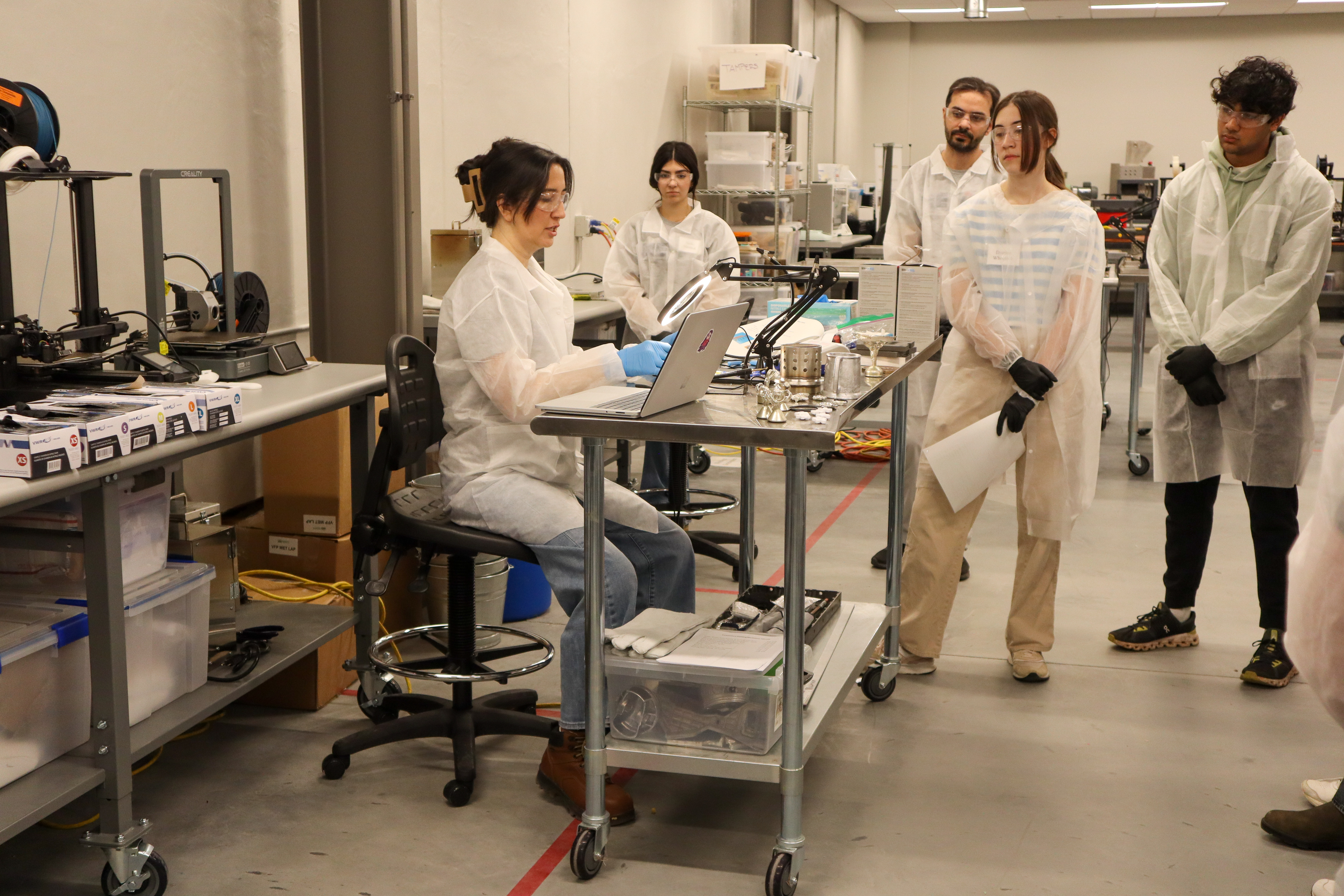
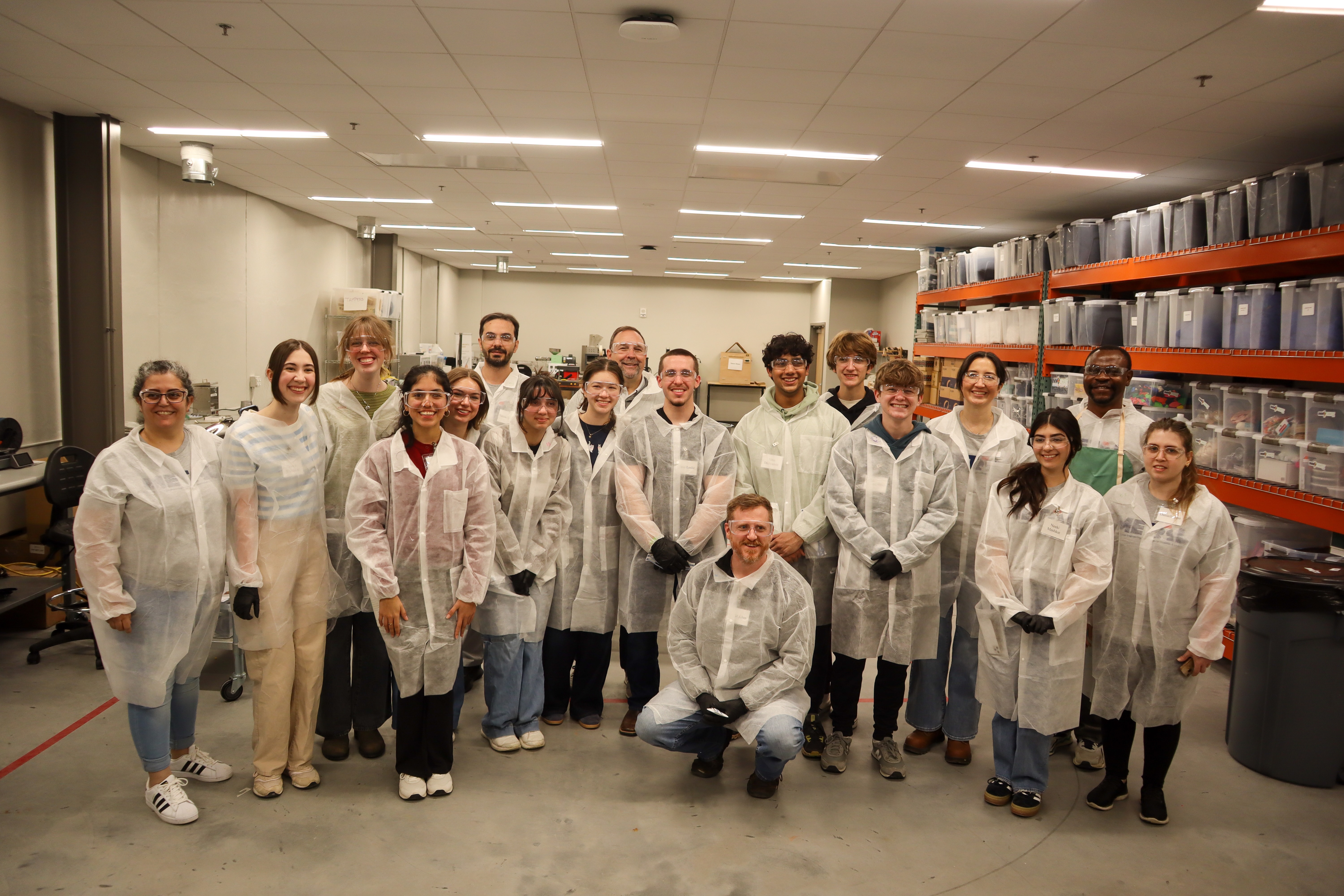
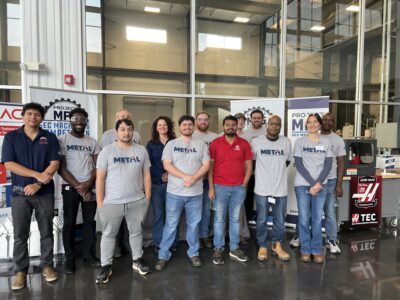 The University of Tennessee, Knoxville (UTK) recently hosted a
The University of Tennessee, Knoxville (UTK) recently hosted a 